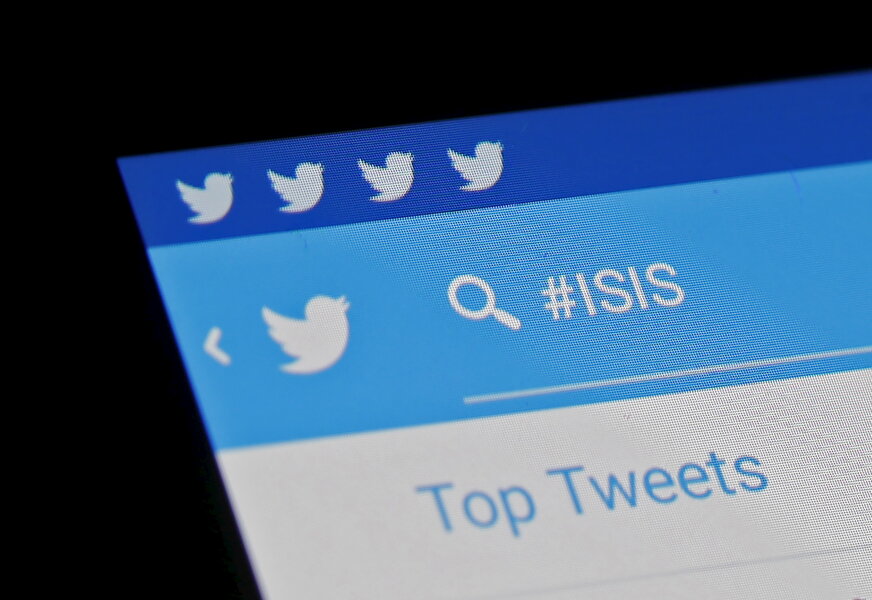Opinion: How to beat ISIS on Twitter
Islamic State and its supporters are managing the most aggressive and effective online recruitment and incitement campaign of any terrorist group in history.
This situation highlights a monumental intelligence failure. Indeed, it's stunning to consider there's no clear policy that could contain the online influence capacity of a terrorist group striving to show it is a more competent nemesis to the US and its allies than al Qaeda.
Nowhere is this failure more evident than on social media. Islamic State members have converted social media platforms managed by American companies like Twitter into cyber sanctuaries, from which the terrorist group amplifies narratives engineered to stimulate plots to kill Americans and our allies. As the terrorism caseload managed by the FBI suggests the Islamic State is accelerating the radicalization process that culminates in violence, it’s time to get more serious about denying terrorists access to these tools.
According to the US National Counterterrorism Center, Islamic State militants demonstrate a "particular affinity for Twitter." On Twitter, propagandists, recruiters, and supporters use thousands of accounts to build and reinforce support for the group. Even though Twitter has suspended many Islamic State-linked accounts, its global network of devotees is undeterred.
This week, posts by Sally Jones exemplify Islamic State's social media savvy, along with just how comfortable Islamic State members are on Twitter. A British national, Ms. Jones has been branded a specially designated global terrorist by the US. Not only did she use a Twitter account to issue terroristic threats against Britain, and to harass a New York Times journalist who covers the Islamic State; she did it after following FBI, Pentagon, and US Central Command (USCENTCOM) Twitter accounts.
Jones' late husband Junaid Hussain, who was killed in a drone strike in Syria during 2015, headed up Islamic State's Hacking Division when it breached USCENTCOM's Twitter account.
Since 2014, Islamic State members have used social media to encourage Muslims to either emigrate to the “caliphate” to help the group defend and expand its territorial holdings, or kill the group’s enemies at home.
In an address posted online in May, Abu Mohamed al-Adnani, who doubles as the group’s spokesman and manager of its terrorist operations in the West, advised supporters to execute attacks in the US, rather than joining the group in the caliphate. Now the go-to site for links to Islamic State leaders' missives, Twitter is an echo chamber for these directives.
Undermining and discrediting these messages isn't something the intelligence community and law enforcement can manage on their own. Yet it would be quite easy to disrupt the Islamic State propaganda machine if Twitter and other social media companies changed the way they do business.
For instance, Twitter could block anyone from posting content when their account is accessed through a virtual private network (VPN). Since militants understand that the intelligence community can use online activities to track terrorist elements, the Islamic State encourages supporters to use VPNs to mask their physical locations when online.
Denying posting capabilities unless geolocation settings are enabled on a device would be another useful measure.
Alternatively, social media companies such as Twitter could charge a monthly fee for users who either wish to access their accounts when using VPNs, or post content when geolocations settings are disabled. By restricting payment options to debit and credit cards issued by major financial institutions, Twitter and other companies would further deter illicit actors from converting their technologies into tools used to support criminal activity, or to threaten our national security.
But rather than emphasize disruption of the Islamic State’s online activities by effectively encouraging social media companies to pursue these measures — or telling Congress there may be a need to compel them to do so — the intelligence community has opted to monitor terrorists' online activities. Yet perhaps Twitter’s recent decision to limit national security managers’ capabilities to do that will result in a new strategy.
Privacy advocates will surely cry foul about these proposed measures. Some of their arguments are legitimate, even if they dually serve to benefit terrorists and many other actors who enjoy an absence of such policies when using social media for illicit purposes.
Indeed, one can imagine terrorists like Sally Jones are most appreciative of their enthusiasm. But the rest of us must prioritize our national security over the privacy concerns of some social media users.
Michael S. Smith II is cofounder and COO of Kronos Advisory. Mr. Smith has served as a contributing expert to the Congressional Anti-Terrorism Caucus and the Congressional Taskforce on Terrorism and Unconventional Warfare. Follow him on Twitter @MichaelSSmithII.






